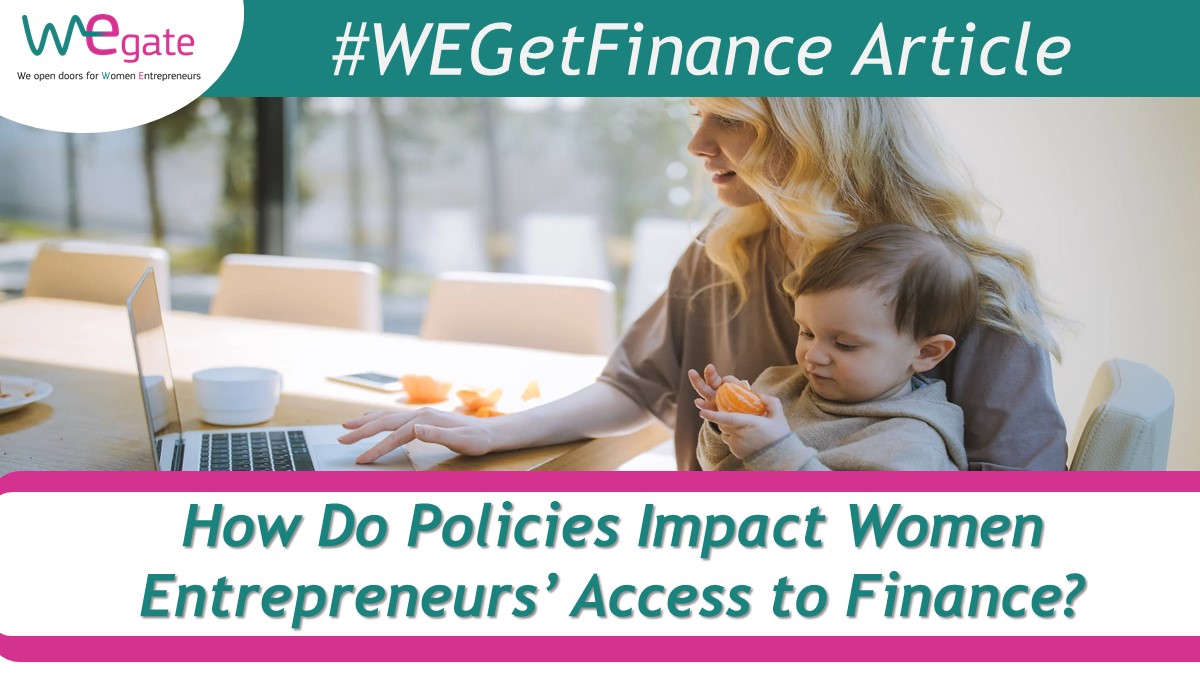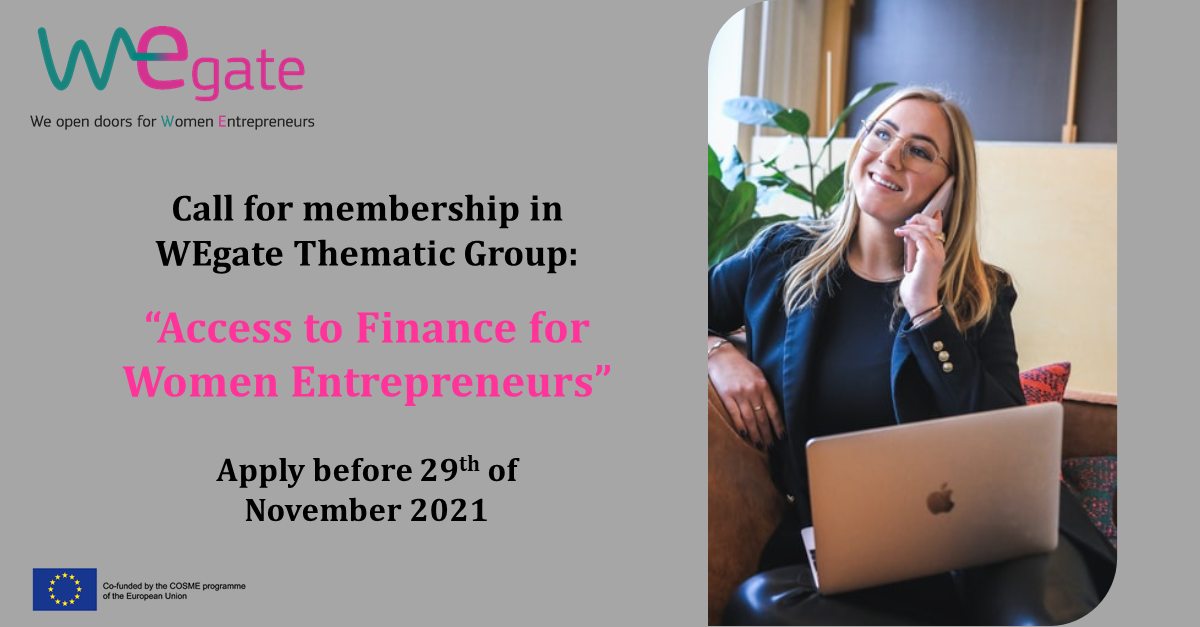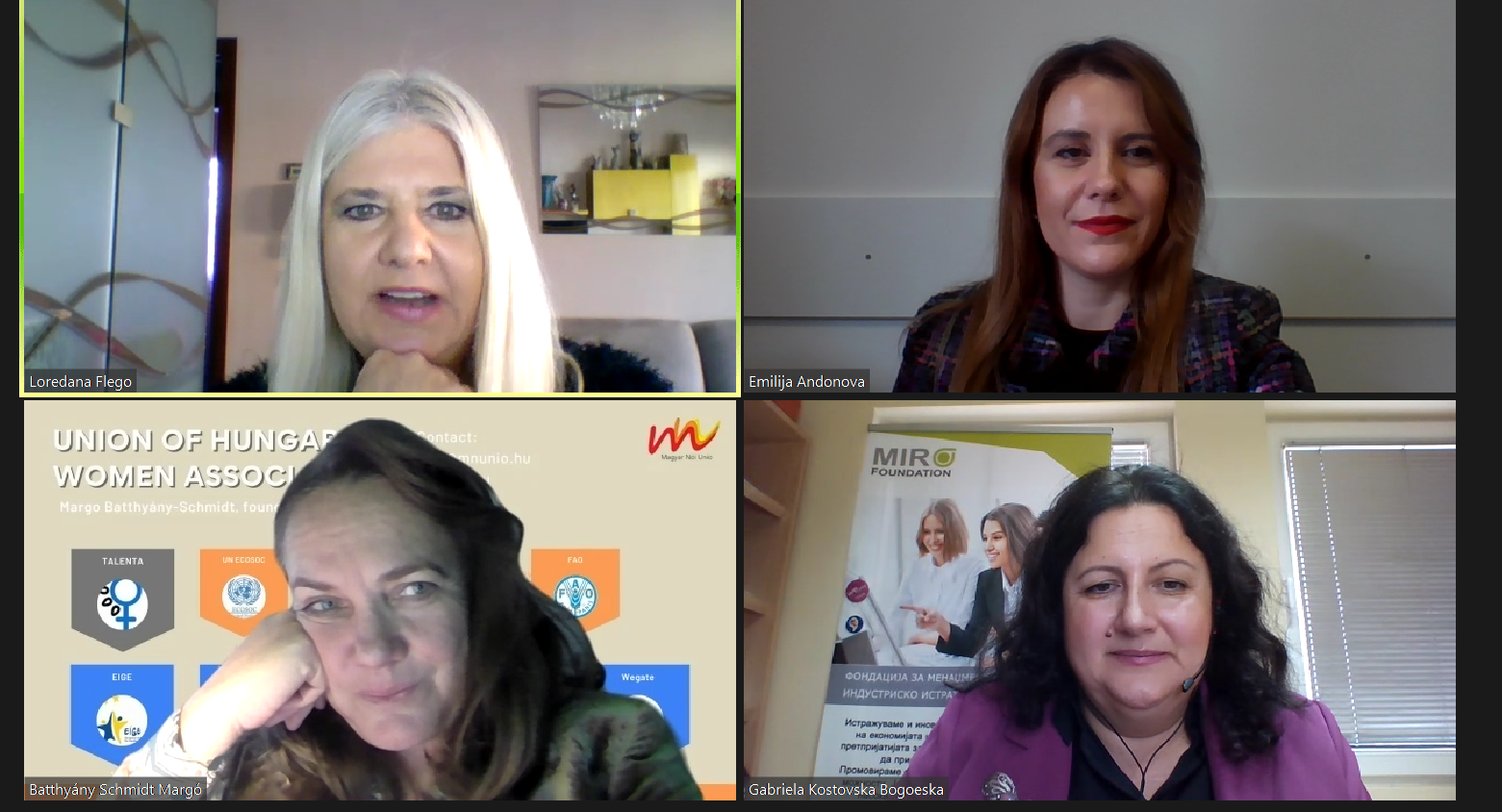
Through the campaign #WEGetFinance, we have looked at different funding streams available to women entrepreneurs to support their businesses and discussed what can be done to improve their ability to access them.
Today we look at the larger context: these streams don’t exist in a vacuum but are part of a broader business environment shaped by cultural norms and policies. Some policies directly impact the fiancing of women entrepreneurs, such as training programs or dedicated grants, but others have an indirect but equally relevant impact.
For example, many studies, including our own WEbarometer 2020 and dedicated OECD research, identify that policies concerning family care have a particularly profound effect on the capacity of women to save time for their own business.
One typical study case is paternity leave’s existence and legal duration for men who become fathers. This type of policy allows for a more equitable distribution of family duties between the parents, meaning that the mother has the chance to dedicate more time to growing the business, for example by tapping into stream funding or learning more about financial literacy.
The policymaking process is equally relevant in this discussion as the representation of women entrepreneurs in the political debate can make a difference in how fast legislative changes can occur. More commonly, this process is easier to be started and driven either by women legislators with an entrepreneurial background or through the activities of entrepreneurial associations with a focus on women that can influence the process.
Societal norms, roles and the legislations they shape are hugely relevant to the capacity of women entrepreneurs to access funding and should be discussed and improved as much as possible to maximise the potential for the competitiveness of women-led businesses. Adequate policies can be the tool to address biases and hidden inequalities that hinder women entrepreneurs from finding new venues to support their business, including financially.






